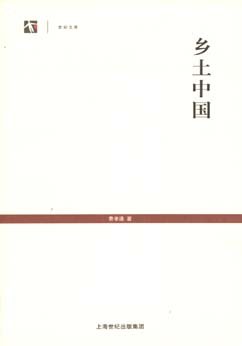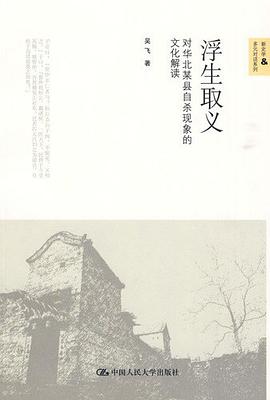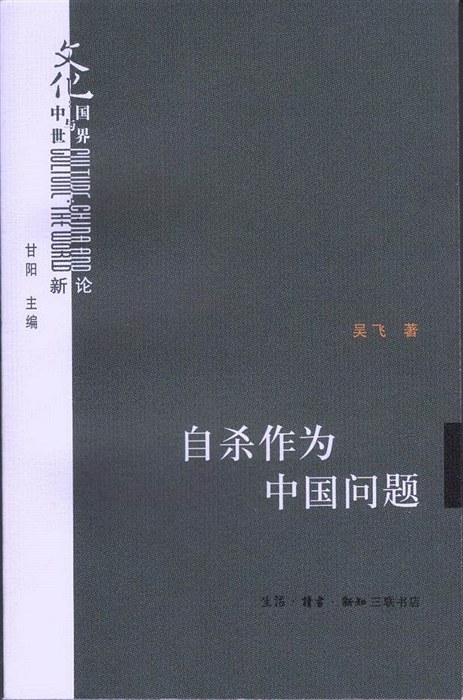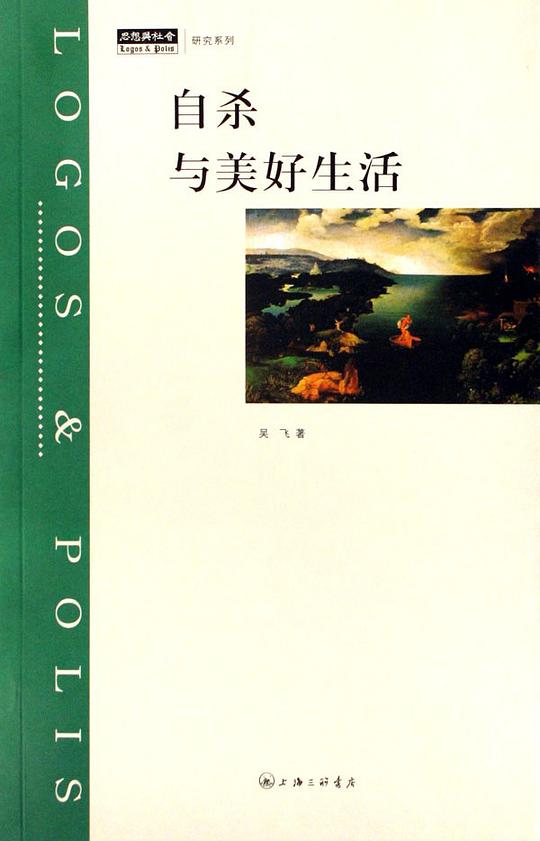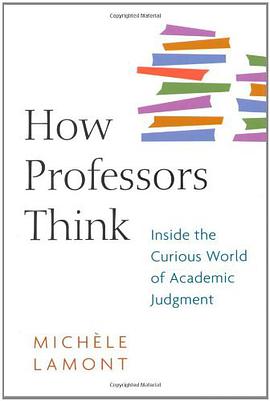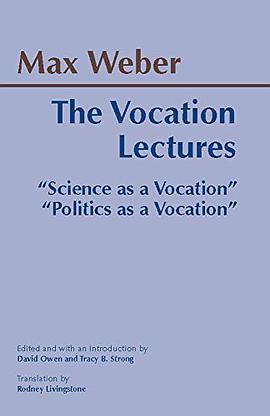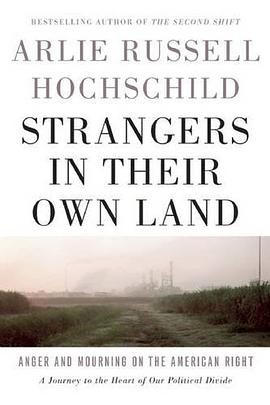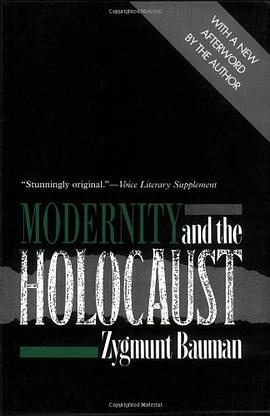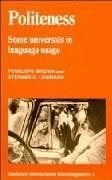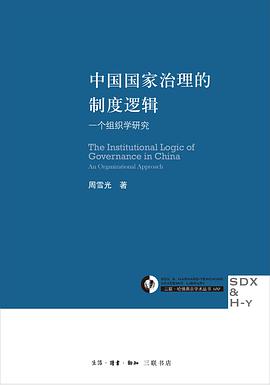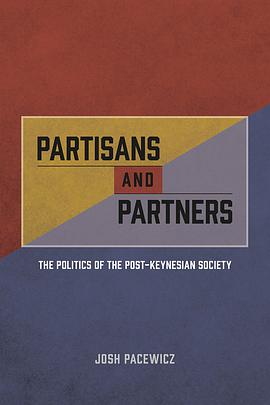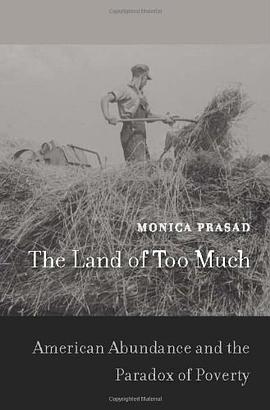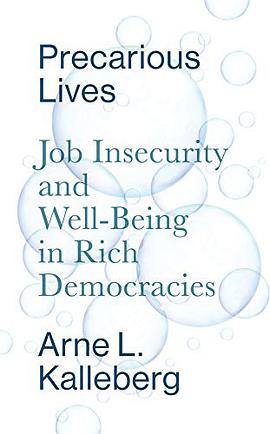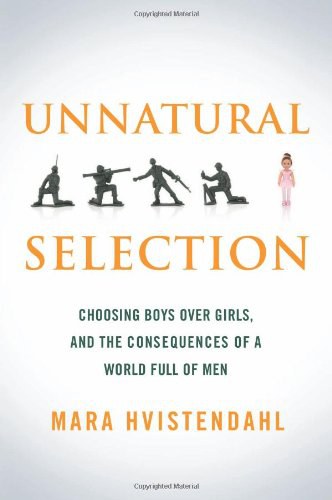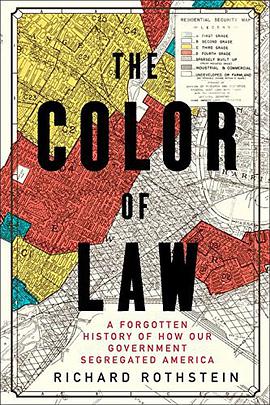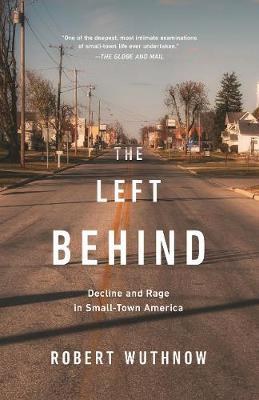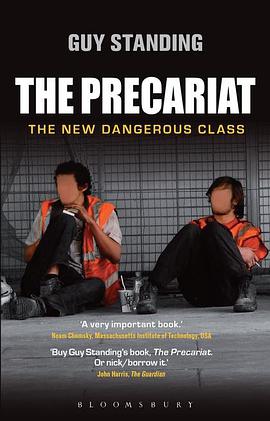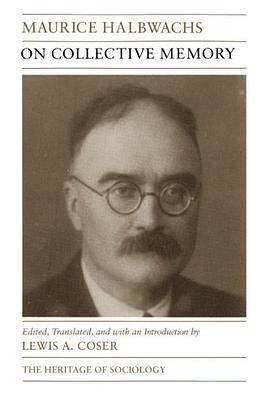社会学
浮生取义 豆瓣
7.6 (108 个评分)
作者:
吴飞
中国人民大学出版社
2009
- 11
简介
“舍生取义”,常常被用来赞美自杀的忠臣义士,但这决不意味着,只有“舍生”才能“取义”。毕竟,需要舍生的场合很少,但“义”却是每个人在生活日用、揖让进退之间都该看重的。作者通过对华北某县自杀现象的田野研究,在现实语境中重新思考中国文化中“生命”和“正义”的问题,从家之礼、人之义、国之法几个层次理解现代中国人的幸福与尊严。书中的基本主张可概括为“缘情制礼,因礼成义,以理成人,以法立国”。
前言与鸣谢
在我们家乡的方言中,“过日子”被称为“过晌”。我大概5岁的时候,跟着我姥姥到她的娘家村去服侍她的母亲。当时我姥姥刚过70,我的太姥姥96岁。我总是听姥姥说“过晌”、“过晌”的,就禁不住问,到底什么是“过晌”呢?面对这样幼稚的问题,大人们自然会哄堂大笑,却也难以给出一个让我满意的答案。我的困惑自然不会打消,不过时间久了,这个词听得多了,好像就忘了我的疑问。直到开始这项研究的时候,我忽然又想起了当年的那个问题,这个时候,我的姥姥也和当年的太姥姥一样年纪了。
在日常生活中,总是有一些司空见惯的词汇和说法,我们从来不去思考它背后的意义,因而也不会觉得有什么探讨的价值。但我们一旦认真对待这些词,就会发现,恰恰是这些看上去最平常的词,才有着巨大的力量。“过日子”和“做人”都是这样的词。我在2002年要下田野的时候,姥姥身体还非常好,没有什么病,知道我要到农村去作研究,就会和我讲起老家很多很多的事,使我恍惚间回到了二十多年前。到了农村里,我母亲不断帮我克服一个一个的困难,帮我理解一个一个自杀背后的理由,我也在不断品味着姥姥给我讲的那些事情和道理,“过日子”这个词就在我脑子里逐渐清晰了起来。我最终决定把它当作理解自杀问题的最重要的概念工具,因为它使我能最好地理解这些普通人的生与死。
因此,面对那么多自杀者的悲惨故事,我一直在以我姥姥的人生当作参照系;甚至在理解西方思想中的人生理论时,姥姥的一生都成为我最根本的思想源泉。但没想到,在我回国半年后,姥姥病倒在了床上;就在我的书写到最后关头的时候,她未能等到看一眼,在自己99岁生日前几天,就驾鹤西去了;而且,最为遗憾的是,我女儿的出生竟然与此凑到了一起,使我无法抽身赶回,只能在妇产医院旁边的十字路口烧一点纸钱。
在研究和写作当中,我以前一直觉得很平凡的姥姥,却显得那么伟大起来。姥姥于1908年出生在一个读书人家,经历了两度江山易主,以及日本侵华、大饥荒、文化大革命这些灾难。二十世纪六十年代,丈夫和公公相继辞世时,她五十多岁,带着五个未成年的女儿,我母亲是老四。我的太姥爷,也就是她的公公,走前的最后一句话是,一定要让几个女孩子读书。当时正是六十年代初,生活状况很不好,但她牢牢记住了这句话,变卖家产,甚至卖掉了祖上传下的珍宝,宁愿让邻里讥嘲她不过日子,也要使自己的五个女儿都读书成才。
姥姥一生虽遭际坎坷,而言谈举止未尝逾礼,乐观豁达,宠辱不惊,侍奉翁姑尽心尽力,教育后辈有张有弛,在远近乡里更是扶危济困,善名远播。最终求仁得仁,福寿百年。一个世纪的沧桑变幻,在她和她的家庭面前都变得苍白无力,烟消云散。中国人过日子的方式究竟有怎样的力量,在这位普通农妇的身上表现得淋漓尽致。
在我姥姥生病的这一年多里,我母亲就慢慢写下了姥姥的一生。我之所以要把她写的一些内容附在本书的最后,不仅是为了纪念老人家,更重要的是,希望能从正面,而不仅仅是自杀者这样的反面,来窥见现代中国人过日子的智慧和境界。之所以说是现代,是因为,虽然姥姥在我们看来还是太传统了,但她面对的问题完全是现代中国的问题;我们要解决自己的问题,一定可以从她那里学到很多。
正是因为姥姥对我的思考的重要意义,我违反了一般鸣谢的惯例,把自己家的人放在了最前面而不是最后,希望读者能够谅解。人到中年,在经历了一些事情,读了一些书之后,才会慢慢体会到中国思想的深厚,才知道日常生活是一部最值得读的书。希望此书在终结了我对自杀研究的同时,开启对“过日子”的更多思考。
当然,如果没有这些年读书的经验,特别是西学的思考,那些日常生活的力量还是很难显露出来的。在我的过日子和做人的过程中,诸多师友的提携与警醒都是必不可少的。正如本书中一再表明的,除了亲人之外,我们还需要师友和国家,才能为自己建构一个立体的人生格局,才能为过日子添加更多的味道。因此,我必须把崇高的敬意献给我的老师:慷慨豪爽的凯博文(Arthur Kleinman)教授和她的夫人凯博艺(Joan Kleinman)、温文尔雅的曼斯费尔德(Harvey Mansfield)教授、随和宽厚的屈佑天(James Watson)教授和他的夫人体贴的华屈若碧(Rubie Watson)教授、博学的卡顿(Steve Caton)教授、和蔼的古德(Byron Good)教授,使我在康桥的日子充满了各种色彩;而杜维明教授不仅直接为我提供了经济支持,也让我深深理解了中华文明在世界上的地位和困难。国内的王守常教授、刘小枫教授、甘阳教授、王铭铭教授、杨念群教授、萧国亮教授、景军教授则使我的一切思考都无法和中国问题割舍开来。
若是一一列举给过我帮助的朋师友,势必成为一个极为冗长的名单。但我还是要提到,李猛一如既往地和我一同深入对每个问题的思考,如果没有他,这本书的完成是不可能的,应星、王利平、徐晓宏则曾经和我同下田野,与我一起体会了实地研究的艰难与收获。吴增定、渠敬东、赵晓力、周飞舟、毛亮、强世功、汪庆华、郭金华,张跃宏、李诚等与我作了多次讨论,帮我修正了很多问题。此外,不得不提到的是,与我一同赴美的同学胡宗泽和我共同渡过了初到美国最艰难的阶段,是我永远不会忘记的;而林国华和郑文龙二兄使我没有陷入美国专业教育的泥沼中,也令我感激不尽。我特别还要感谢我的师妹何江穗。她曾经费尽辛苦,帮我将我姥姥口述的十几盘磁带录成文字。
回国之后,北大哲学系的赵敦华、陈来、张志刚、孙尚扬、尚新建、李四龙等教授为我新的研究和教学生活提供了极大的便利。更重要的是,初为人师的我逐渐开始进入一种新的伦理关系。得天下英才而教之已经成为我生活中极大的快乐。能够让学生们有所收获,已经成为我现在继续研究的主要动力。感谢我所有学生的理解和支持。
此外,还要感谢哈佛-燕京学社、弗里德曼基金会、香港中文大学研究基金、中国博士后科学基金、中国教育部留学回国人员科研启动基金对我的研究的经济支持。
本文中的一些章节陆续在一些刊物上发表过,在此感谢这些刊物允许此处重刊:1.1以“自杀中的‘正义’问题”刊于《社会学家茶座》第十八辑,2.1和2.3以“论‘过日子’”刊于《社会学研究》2007年第 6期,4.2以“夫妇之礼与家庭之义:一个个案分析”刊于《乡土中国与文化自觉》文集(三联书店,2007)。
吴 飞
2008年7月于北京
“舍生取义”,常常被用来赞美自杀的忠臣义士,但这决不意味着,只有“舍生”才能“取义”。毕竟,需要舍生的场合很少,但“义”却是每个人在生活日用、揖让进退之间都该看重的。作者通过对华北某县自杀现象的田野研究,在现实语境中重新思考中国文化中“生命”和“正义”的问题,从家之礼、人之义、国之法几个层次理解现代中国人的幸福与尊严。书中的基本主张可概括为“缘情制礼,因礼成义,以理成人,以法立国”。
前言与鸣谢
在我们家乡的方言中,“过日子”被称为“过晌”。我大概5岁的时候,跟着我姥姥到她的娘家村去服侍她的母亲。当时我姥姥刚过70,我的太姥姥96岁。我总是听姥姥说“过晌”、“过晌”的,就禁不住问,到底什么是“过晌”呢?面对这样幼稚的问题,大人们自然会哄堂大笑,却也难以给出一个让我满意的答案。我的困惑自然不会打消,不过时间久了,这个词听得多了,好像就忘了我的疑问。直到开始这项研究的时候,我忽然又想起了当年的那个问题,这个时候,我的姥姥也和当年的太姥姥一样年纪了。
在日常生活中,总是有一些司空见惯的词汇和说法,我们从来不去思考它背后的意义,因而也不会觉得有什么探讨的价值。但我们一旦认真对待这些词,就会发现,恰恰是这些看上去最平常的词,才有着巨大的力量。“过日子”和“做人”都是这样的词。我在2002年要下田野的时候,姥姥身体还非常好,没有什么病,知道我要到农村去作研究,就会和我讲起老家很多很多的事,使我恍惚间回到了二十多年前。到了农村里,我母亲不断帮我克服一个一个的困难,帮我理解一个一个自杀背后的理由,我也在不断品味着姥姥给我讲的那些事情和道理,“过日子”这个词就在我脑子里逐渐清晰了起来。我最终决定把它当作理解自杀问题的最重要的概念工具,因为它使我能最好地理解这些普通人的生与死。
因此,面对那么多自杀者的悲惨故事,我一直在以我姥姥的人生当作参照系;甚至在理解西方思想中的人生理论时,姥姥的一生都成为我最根本的思想源泉。但没想到,在我回国半年后,姥姥病倒在了床上;就在我的书写到最后关头的时候,她未能等到看一眼,在自己99岁生日前几天,就驾鹤西去了;而且,最为遗憾的是,我女儿的出生竟然与此凑到了一起,使我无法抽身赶回,只能在妇产医院旁边的十字路口烧一点纸钱。
在研究和写作当中,我以前一直觉得很平凡的姥姥,却显得那么伟大起来。姥姥于1908年出生在一个读书人家,经历了两度江山易主,以及日本侵华、大饥荒、文化大革命这些灾难。二十世纪六十年代,丈夫和公公相继辞世时,她五十多岁,带着五个未成年的女儿,我母亲是老四。我的太姥爷,也就是她的公公,走前的最后一句话是,一定要让几个女孩子读书。当时正是六十年代初,生活状况很不好,但她牢牢记住了这句话,变卖家产,甚至卖掉了祖上传下的珍宝,宁愿让邻里讥嘲她不过日子,也要使自己的五个女儿都读书成才。
姥姥一生虽遭际坎坷,而言谈举止未尝逾礼,乐观豁达,宠辱不惊,侍奉翁姑尽心尽力,教育后辈有张有弛,在远近乡里更是扶危济困,善名远播。最终求仁得仁,福寿百年。一个世纪的沧桑变幻,在她和她的家庭面前都变得苍白无力,烟消云散。中国人过日子的方式究竟有怎样的力量,在这位普通农妇的身上表现得淋漓尽致。
在我姥姥生病的这一年多里,我母亲就慢慢写下了姥姥的一生。我之所以要把她写的一些内容附在本书的最后,不仅是为了纪念老人家,更重要的是,希望能从正面,而不仅仅是自杀者这样的反面,来窥见现代中国人过日子的智慧和境界。之所以说是现代,是因为,虽然姥姥在我们看来还是太传统了,但她面对的问题完全是现代中国的问题;我们要解决自己的问题,一定可以从她那里学到很多。
正是因为姥姥对我的思考的重要意义,我违反了一般鸣谢的惯例,把自己家的人放在了最前面而不是最后,希望读者能够谅解。人到中年,在经历了一些事情,读了一些书之后,才会慢慢体会到中国思想的深厚,才知道日常生活是一部最值得读的书。希望此书在终结了我对自杀研究的同时,开启对“过日子”的更多思考。
当然,如果没有这些年读书的经验,特别是西学的思考,那些日常生活的力量还是很难显露出来的。在我的过日子和做人的过程中,诸多师友的提携与警醒都是必不可少的。正如本书中一再表明的,除了亲人之外,我们还需要师友和国家,才能为自己建构一个立体的人生格局,才能为过日子添加更多的味道。因此,我必须把崇高的敬意献给我的老师:慷慨豪爽的凯博文(Arthur Kleinman)教授和她的夫人凯博艺(Joan Kleinman)、温文尔雅的曼斯费尔德(Harvey Mansfield)教授、随和宽厚的屈佑天(James Watson)教授和他的夫人体贴的华屈若碧(Rubie Watson)教授、博学的卡顿(Steve Caton)教授、和蔼的古德(Byron Good)教授,使我在康桥的日子充满了各种色彩;而杜维明教授不仅直接为我提供了经济支持,也让我深深理解了中华文明在世界上的地位和困难。国内的王守常教授、刘小枫教授、甘阳教授、王铭铭教授、杨念群教授、萧国亮教授、景军教授则使我的一切思考都无法和中国问题割舍开来。
若是一一列举给过我帮助的朋师友,势必成为一个极为冗长的名单。但我还是要提到,李猛一如既往地和我一同深入对每个问题的思考,如果没有他,这本书的完成是不可能的,应星、王利平、徐晓宏则曾经和我同下田野,与我一起体会了实地研究的艰难与收获。吴增定、渠敬东、赵晓力、周飞舟、毛亮、强世功、汪庆华、郭金华,张跃宏、李诚等与我作了多次讨论,帮我修正了很多问题。此外,不得不提到的是,与我一同赴美的同学胡宗泽和我共同渡过了初到美国最艰难的阶段,是我永远不会忘记的;而林国华和郑文龙二兄使我没有陷入美国专业教育的泥沼中,也令我感激不尽。我特别还要感谢我的师妹何江穗。她曾经费尽辛苦,帮我将我姥姥口述的十几盘磁带录成文字。
回国之后,北大哲学系的赵敦华、陈来、张志刚、孙尚扬、尚新建、李四龙等教授为我新的研究和教学生活提供了极大的便利。更重要的是,初为人师的我逐渐开始进入一种新的伦理关系。得天下英才而教之已经成为我生活中极大的快乐。能够让学生们有所收获,已经成为我现在继续研究的主要动力。感谢我所有学生的理解和支持。
此外,还要感谢哈佛-燕京学社、弗里德曼基金会、香港中文大学研究基金、中国博士后科学基金、中国教育部留学回国人员科研启动基金对我的研究的经济支持。
本文中的一些章节陆续在一些刊物上发表过,在此感谢这些刊物允许此处重刊:1.1以“自杀中的‘正义’问题”刊于《社会学家茶座》第十八辑,2.1和2.3以“论‘过日子’”刊于《社会学研究》2007年第 6期,4.2以“夫妇之礼与家庭之义:一个个案分析”刊于《乡土中国与文化自觉》文集(三联书店,2007)。
吴 飞
2008年7月于北京
自杀与美好生活 豆瓣
8.8 (5 个评分)
作者:
吴飞
上海三联书店
2007
- 1
本书为“思想与社会研究系列”之一,对自杀行为作了深入的研究。全书共分古典德性的极限追求、上帝面前的神性和罪性、现代自杀问题的诞生等三个部分。本书内容丰富,分析透彻,具有很高的学术价值。 这本书并不是一本严格的历史或思想史的梳理。近些年来,对西方自杀历史的研究已经相当丰富。本书所要达到的目的,并不是将欧美学界的这些成果介绍到中国来,也不是全面勾画出自杀思考的哲学史。就本书叙述的时段而言,很多惊心动魂的讨论还根本没有开场。本书所触及的时段,有很多自杀问题相关的人与事,作者也并未谈及。这本书所要做的,是选取古典、中世纪、英国现代早期这三个时段,看其中的人们对同一个问题的不同思考和处理方式,由此勾勒出他们对待美好生活、人性善恶,以及政治建构的相互勾连但又非常不同的思想脉络。
How Professors Think 豆瓣
作者:
Michele Lamont
Harvard University Press
2009
- 3
Excellence. Originality. Intelligence. Everyone in academia stresses quality. But what exactly is it, and how do professors identify it?
In the academic evaluation system known as “peer review,” highly respected professors pass judgment, usually confidentially, on the work of others. But only those present in the deliberative chambers know exactly what is said. Michèle Lamont observed deliberations for fellowships and research grants, and interviewed panel members at length. In How Professors Think, she reveals what she discovered about this secretive, powerful, peculiar world.
Anthropologists, political scientists, literary scholars, economists, historians, and philosophers don’t share the same standards. Economists prefer mathematical models, historians favor different kinds of evidence, and philosophers don’t care much if only other philosophers understand them. But when they come together for peer assessment, academics are expected to explain their criteria, respect each other’s expertise, and guard against admiring only work that resembles their own. They must decide: Is the research original and important? Brave, or glib? Timely, or merely trendy? Pro-diversity or interdisciplinary enough?
Judging quality isn’t robotically rational; it’s emotional, cognitive, and social, too. Yet most academics’ self-respect is rooted in their ability to analyze complexity and recognize quality, in order to come to the fairest decisions about that elusive god, “excellence.” In How Professors Think, Lamont aims to illuminate the confidential process of evaluation and to push the gatekeepers to both better understand and perform their role.
In the academic evaluation system known as “peer review,” highly respected professors pass judgment, usually confidentially, on the work of others. But only those present in the deliberative chambers know exactly what is said. Michèle Lamont observed deliberations for fellowships and research grants, and interviewed panel members at length. In How Professors Think, she reveals what she discovered about this secretive, powerful, peculiar world.
Anthropologists, political scientists, literary scholars, economists, historians, and philosophers don’t share the same standards. Economists prefer mathematical models, historians favor different kinds of evidence, and philosophers don’t care much if only other philosophers understand them. But when they come together for peer assessment, academics are expected to explain their criteria, respect each other’s expertise, and guard against admiring only work that resembles their own. They must decide: Is the research original and important? Brave, or glib? Timely, or merely trendy? Pro-diversity or interdisciplinary enough?
Judging quality isn’t robotically rational; it’s emotional, cognitive, and social, too. Yet most academics’ self-respect is rooted in their ability to analyze complexity and recognize quality, in order to come to the fairest decisions about that elusive god, “excellence.” In How Professors Think, Lamont aims to illuminate the confidential process of evaluation and to push the gatekeepers to both better understand and perform their role.
The Vocation Lectures 豆瓣
作者:
Max Weber
译者:
Rodney Livingstone
Hackett Publishing Company, Inc.
2004
- 3
Originally published separately, Weber's 'Science as a Vocation' and 'Politics as a Vocation' stand as the classic formulations of his positions on two related subjects that go to the heart of his thought: the nature and status of science and its claims to authority; and the nature and status of political claims and the ultimate justification for such claims. Together in this volume, these newly translated lectures offer an ideal point of entry into Weber's central project: understanding how, as Weber put it, "in the West alone there have appeared cultural manifestations [that seem to] go in the direction of universal significance and validity."
Strangers in Their Own Land 豆瓣
8.6 (7 个评分)
作者:
Arlie Russell Hochschild
The New Press
2016
- 9
Arlie Hochschild is best known for her contributions to the domestic division of labor (The Second Shift), emotional labor (The Managed Heart), the rationalization of the home (Time Bind), the commodification of private life (The Commercialization of Intimate Life, The Outsourced Self). In her latest book, Strangers in Their Own Land, Hochschild takes her notion of “feeling rules” to Louisiana, exploring the emotional foundations of right wing politics (The Tea Party and support for Donald Trump) by studying divergent responses to one of the most pressing issues facing the region – environmental pollution. On the basis of her fieldwork, conducted between 2011 and 2016, Hochschild advances the “deep story” of supporters of the American right: “…the shifting moral qualifications for the American Dream had turned them into strangers in their own land, afraid, resentful, displaced, and dismissed by the very people who were, they felt, cutting in line.”
Modernity and the Holocaust 豆瓣 Goodreads
Modernity and the Holocaust
作者:
Zygmunt Bauman
Cornell University Press
2001
- 2
Attempting to provide a sociological explanation of the Holocaust, the main theme of this work is the demonstration that the Holocaust has to be understood as deeply involved with the nature of modernity - neither a single event nor a simple outpouring of barbarism. The author discusses what sociology can teach us about the Holocaust, but more particularly concentrates upon the lesson which the Holocaust has for sociology. There are two ways, he points out, in which the significance of the Holocaust can be side-stepped in our understanding of modernity. One way is to present the Holocaust as something which happened to the Jews, as an event in Jewish history. A second way is to regard the Holocaust as representing loathsome aspects of social life which the progress of modernity will increasingly overcome. Neither of these views stand up to scrutiny, according to the author.
Politeness 豆瓣 Goodreads
Politeness: Some Universals in Language Usage (Studies in Interactional Sociolinguistics)
作者:
Penelope Brown
/
Stephen C. Levinson
Cambridge University Press
1987
- 2
This study is about the principles for constructing polite speeches. The core of it first appeared in Questions and Politeness, edited by Esther N. Goody (now out of print). It is here reissued with a fresh introduction that surveys the considerable literature in linguistics, psychology and the social sciences that the original extended essay stimulated, and suggests distinct directions for research. The authors describe and account for some remarkable parallelisms in the linguistic construction of utterances with which people express themselves in different languages and cultures. A motive for these parallels is isolated - politeness, broadly defined to include both polite friendliness and polite formality - and a universal model is constructed outlining the abstract principles underlying polite usages. This is based on the detailed study of three unrelated languages and cultures: the Tamil of South India, the Tzeltal spoken by Mayan Indians in Chiapas, Mexico, and the English of the USA and England, supplemented by examples from other cultures. Underneath the apparent diversity of polite behaviour in different societies lie some general pan-human principles of social interaction, and the model of politeness provides a tool for analysing the quality of social relations in any society. This volume will be of special interest to students in linguistic pragmatics, sociolinguistics, applied linguistics, anthropology, and the sociology and social psychology of interaction.
中国国家治理的制度逻辑 豆瓣 谷歌图书 Goodreads
9.4 (177 个评分)
作者:
周雪光
生活·读书·新知三联书店
2017
- 3
关于中国国家的治理逻辑,本书主要沿着两条脉络进行探讨:一是中央权威与地方政府之间的关系,这体现在各级政府体制的制度设施和行为方式;一是国家与民众之间的关系,这体现在国家与社会群体的相互影响上。本书从学术上推进了当前国内的国家治理研究,并为社会科学研究者提供了一种可以参照 的研究路径和视角。
Partisans and Partners 豆瓣
作者:
Josh Pacewicz
The University of Chicago Press
2016
- 4
There’s no question that Americans are bitterly divided by politics. But in Partisans and Partners, Josh Pacewicz finds that our traditional understanding of red/blue, right/left, urban/rural division is too simplistic.
Wheels-down in Iowa—that most important of primary states—Pacewicz looks to two cities, one traditionally Democratic, the other traditionally Republican, and finds that younger voters are rejecting older-timers’ strict political affiliations. A paradox is emerging—as the dividing lines between America’s political parties have sharpened, Americans are at the same time growing distrustful of traditional party politics in favor of becoming apolitical or embracing outside-the-beltway candidates. Pacewicz sees this change coming not from politicians and voters, but from the fundamental reorganization of the community institutions in which political parties have traditionally been rooted. Weaving together major themes in American political history—including globalization, the decline of organized labor, loss of locally owned industries, uneven economic development, and the emergence of grassroots populist movements—Partisans and Partners is a timely and comprehensive analysis of American politics as it happens on the ground.
REVIEW QUOTES
Andrew Abbott, University of Chicago
“A tale of two cities, and through them, of the tidal shifts of American politics in the last forty years. Based on years of painstaking field work as well as on archival and documentary analysis, the book develops a whole new approach to theorizing American political life. This will be one of the definitive American political ethnographies, right up there with Robert Dahl’s Who Governs?”
Nina Eliasoph, University of Southern California
“This superb study of the transformations of local political power in the United States over the past forty years doubles as a beautiful, tender, and evocative portrait of two whole ways of life, and triples as a set of answers to the most burning political questions of the day. Local politicians, party members, scholars of politics and culture, nonprofit managers, voters: everyone should read this book! By bringing poetry, science, and history to bear on our country—and world’s—most urgent political and social questions, Partisans and Partners ought to become a classic.”
Wheels-down in Iowa—that most important of primary states—Pacewicz looks to two cities, one traditionally Democratic, the other traditionally Republican, and finds that younger voters are rejecting older-timers’ strict political affiliations. A paradox is emerging—as the dividing lines between America’s political parties have sharpened, Americans are at the same time growing distrustful of traditional party politics in favor of becoming apolitical or embracing outside-the-beltway candidates. Pacewicz sees this change coming not from politicians and voters, but from the fundamental reorganization of the community institutions in which political parties have traditionally been rooted. Weaving together major themes in American political history—including globalization, the decline of organized labor, loss of locally owned industries, uneven economic development, and the emergence of grassroots populist movements—Partisans and Partners is a timely and comprehensive analysis of American politics as it happens on the ground.
REVIEW QUOTES
Andrew Abbott, University of Chicago
“A tale of two cities, and through them, of the tidal shifts of American politics in the last forty years. Based on years of painstaking field work as well as on archival and documentary analysis, the book develops a whole new approach to theorizing American political life. This will be one of the definitive American political ethnographies, right up there with Robert Dahl’s Who Governs?”
Nina Eliasoph, University of Southern California
“This superb study of the transformations of local political power in the United States over the past forty years doubles as a beautiful, tender, and evocative portrait of two whole ways of life, and triples as a set of answers to the most burning political questions of the day. Local politicians, party members, scholars of politics and culture, nonprofit managers, voters: everyone should read this book! By bringing poetry, science, and history to bear on our country—and world’s—most urgent political and social questions, Partisans and Partners ought to become a classic.”
The Land of Too Much 豆瓣 Goodreads
作者:
Monica Prasad
Harvard University Press
2012
The Land of Too Much presents a simple but powerful hypothesis that addresses three questions: Why does the United States have more poverty than any other developed country? Why did it experience an attack on state intervention starting in the 1980s, known today as the neoliberal revolution? And why did it recently suffer the greatest economic meltdown in seventy-five years? Although the United States is often considered a liberal, laissez-faire state, Monica Prasad marshals convincing evidence to the contrary. Indeed, she argues that a strong tradition of government intervention undermined the development of a European-style welfare state. The demand-side theory of comparative political economy she develops here explains how and why this happened. Her argument begins in the late nineteenth century, when America's explosive economic growth overwhelmed world markets, causing price declines everywhere. While European countries adopted protectionist policies in response, in the United States lower prices spurred an agrarian movement that rearranged the political landscape. The federal government instituted progressive taxation and a series of strict financial regulations that ironically resulted in more freely available credit. As European countries developed growth models focused on investment and exports, the United States developed a growth model based on consumption. These large-scale interventions led to economic growth that met citizen needs through private credit rather than through social welfare policies. Among the outcomes have been higher poverty, a backlash against taxation and regulation, and a housing bubble fueled by "mortgage Keynesianism." This book will launch a thousand debates.
Precarious Lives 豆瓣
作者:
Arne L. Kalleberg
Polity Press
2018
- 6
Unnatural Selection 豆瓣
作者:
Mara Hvistendahl
PublicAffairs
2011
- 6
Lianyungang, a booming port city, has Chinas most extreme gender ratio for children under four: 163 boys for every 100 girls. These numbers dont seem terribly grim, but in ten years, the skewed sex ratio will pose a colossal challenge. By the time those children reach adulthood, their generation will have twenty-four million more men than women. The prognosis for Chinas neighbors is no less bleak: Asia now has 163 million females missing from its population. Gender imbalance reaches far beyond Asia, affecting Georgia, Eastern Europe, and cities in the U. S. where there are significant immigrant populations. The world, therefore, is becoming increasingly male, and this mismatch is likely to create profound social upheaval. Historically, eras in which there have been an excess of men have produced periods of violent conflict and instability. Mara Hvistendahl has written a stunning, impeccably-researched book that does not flinch from examining not only the consequences of the misbegotten policies of sex selection but Western complicity with them.
The Color of Law 豆瓣 谷歌图书 Goodreads
作者:
Richard Rothstein
Liveright
2017
- 5
In this groundbreaking history of the modern American metropolis, Richard Rothstein, a leading authority on housing policy, explodes the myth that America’s cities came to be racially divided through de facto segregation―that is, through individual prejudices, income differences, or the actions of private institutions like banks and real estate agencies. Rather, The Color of Law incontrovertibly makes clear that it was de jure segregation―the laws and policy decisions passed by local, state, and federal governments―that actually promoted the discriminatory patterns that continue to this day.
Through extraordinary revelations and extensive research that Ta-Nehisi Coates has lauded as "brilliant" (The Atlantic), Rothstein comes to chronicle nothing less than an untold story that begins in the 1920s, showing how this process of de jure segregation began with explicit racial zoning, as millions of African Americans moved in a great historical migration from the south to the north.
Through extraordinary revelations and extensive research that Ta-Nehisi Coates has lauded as "brilliant" (The Atlantic), Rothstein comes to chronicle nothing less than an untold story that begins in the 1920s, showing how this process of de jure segregation began with explicit racial zoning, as millions of African Americans moved in a great historical migration from the south to the north.
The Fair Housing Act of 1968 prohibited future discrimination but did nothing to reverse residential patterns that had become deeply embedded. Yet recent outbursts of violence in cities like Baltimore, Ferguson, and Minneapolis show us precisely how the legacy of these earlier eras contributes to persistent racial unrest. “The American landscape will never look the same to readers of this important book” (Sherrilyn Ifill, president of the NAACP Legal Defense Fund), as Rothstein’s invaluable examination shows that only by relearning this history can we finally pave the way for the nation to remedy its unconstitutional past.
Through extraordinary revelations and extensive research that Ta-Nehisi Coates has lauded as "brilliant" (The Atlantic), Rothstein comes to chronicle nothing less than an untold story that begins in the 1920s, showing how this process of de jure segregation began with explicit racial zoning, as millions of African Americans moved in a great historical migration from the south to the north.
Through extraordinary revelations and extensive research that Ta-Nehisi Coates has lauded as "brilliant" (The Atlantic), Rothstein comes to chronicle nothing less than an untold story that begins in the 1920s, showing how this process of de jure segregation began with explicit racial zoning, as millions of African Americans moved in a great historical migration from the south to the north.
The Fair Housing Act of 1968 prohibited future discrimination but did nothing to reverse residential patterns that had become deeply embedded. Yet recent outbursts of violence in cities like Baltimore, Ferguson, and Minneapolis show us precisely how the legacy of these earlier eras contributes to persistent racial unrest. “The American landscape will never look the same to readers of this important book” (Sherrilyn Ifill, president of the NAACP Legal Defense Fund), as Rothstein’s invaluable examination shows that only by relearning this history can we finally pave the way for the nation to remedy its unconstitutional past.
The Left Behind 豆瓣
作者:
Robert Wuthnow
Princeton University Press
2019
- 5
What is fueling rural America’s outrage toward the federal government? Why did rural Americans vote overwhelmingly for Donald Trump? And is there a more nuanced explanation for the growing rural-urban divide? Drawing on more than a decade of research and hundreds of interviews, Robert Wuthnow brings us into America’s small towns, farms, and rural communities to paint a rich portrait of the moral order—the interactions, loyalties, obligations, and identities—underpinning this critical segment of the nation. Wuthnow demonstrates that to truly understand rural Americans’ anger, their culture must be explored more fully, and he shows that rural America’s fury stems less from economic concerns than from the perception that Washington is distant from and yet threatening to the social fabric of small towns. Moving beyond simplistic depictions of America’s heartland, The Left Behind offers a clearer picture of how this important population will influence the nation’s political future.
The Precariat 豆瓣
作者:
Guy Standing
Bloomsbury Academic
2014
Described by Noam Chomsky as 'a very important book', Guy Standing's The Precariat has achieved cult status as the first account of this emerging class of people, facing lives of insecurity, moving in and out of jobs that give little meaning to their lives.
Guy Standing warns that the rapid growth of the precariat is producing instabilities in society. It is a dangerous class because it is internally divided, leading to the villainisation of migrants and other vulnerable groups. And, lacking agency, its members may be susceptible to the siren calls of political extremism. He argues for a new politics, in which redistribution and income security are reconfigured and in which the fears and aspirations of the precariat are made central to a progressive strategy.
Since first publication of this book in 2011, the precariat has become an ever more significant global phenomenon, highly visible in the Occupy movement and in protest movements around the world.
In a new preface Guy Standing discusses such developments - are they indicative of the emergence of a new collective spirit, or do they simply reveal the growing size and growing anger of this new class?
Guy Standing warns that the rapid growth of the precariat is producing instabilities in society. It is a dangerous class because it is internally divided, leading to the villainisation of migrants and other vulnerable groups. And, lacking agency, its members may be susceptible to the siren calls of political extremism. He argues for a new politics, in which redistribution and income security are reconfigured and in which the fears and aspirations of the precariat are made central to a progressive strategy.
Since first publication of this book in 2011, the precariat has become an ever more significant global phenomenon, highly visible in the Occupy movement and in protest movements around the world.
In a new preface Guy Standing discusses such developments - are they indicative of the emergence of a new collective spirit, or do they simply reveal the growing size and growing anger of this new class?
On Collective Memory 豆瓣
作者:
Maurice Halbwachs
译者:
Lewis A. Coser
University Of Chicago Press
1992
- 9
How do we use our mental images of the present to reconstruct
our past? Maurice Halbwachs (1877-1945) addressed this
question for the first time in his work on collective memory,
which established him as a major figure in the history of
sociology. This volume, the first comprehensive English-
language translation of Halbwach's writings on the social
construction of memory, fills a major gap in the literature
on the sociology of knowledge.
Halbwachs' primary thesis is that human memory can only
function within a collective context. Collective memory,
Halbwachs asserts, is always selective; various groups of
people have different collective memories, which in turn give
rise to different modes of behavior. Halbwachs shows, for
example, how pilgrims to the Holy Land over the centuries
evoked very different images of the events of Jesus' life;
how wealthy old families in France have a memory of the past
that diverges sharply from that of the nouveaux riches; and
how working class constructions of reality differ from those
of their middle-class counterparts.
With a detailed introduction by Lewis A. Coser, this
translation will be an indispensable source for new research
in historical sociology and cultural memory.
Lewis A. Coser is Distinguished Professor of Sociology
Emeritus at the State University of New York and Adjunct
Professor of Sociology at Boston College.
our past? Maurice Halbwachs (1877-1945) addressed this
question for the first time in his work on collective memory,
which established him as a major figure in the history of
sociology. This volume, the first comprehensive English-
language translation of Halbwach's writings on the social
construction of memory, fills a major gap in the literature
on the sociology of knowledge.
Halbwachs' primary thesis is that human memory can only
function within a collective context. Collective memory,
Halbwachs asserts, is always selective; various groups of
people have different collective memories, which in turn give
rise to different modes of behavior. Halbwachs shows, for
example, how pilgrims to the Holy Land over the centuries
evoked very different images of the events of Jesus' life;
how wealthy old families in France have a memory of the past
that diverges sharply from that of the nouveaux riches; and
how working class constructions of reality differ from those
of their middle-class counterparts.
With a detailed introduction by Lewis A. Coser, this
translation will be an indispensable source for new research
in historical sociology and cultural memory.
Lewis A. Coser is Distinguished Professor of Sociology
Emeritus at the State University of New York and Adjunct
Professor of Sociology at Boston College.
